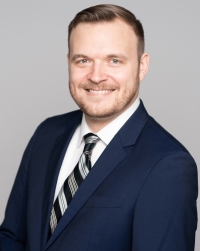Memory Disorders Clinic
The Memory Disorders Clinic consists of a team of neurologists, psychiatrists, neuropsychologists, and other health-care professionals specially trained in diagnosing and treating memory disorders. The team offers participation in a variety of research studies. These include investigational treatment studies for mild cognitive impairment and Alzheimer's disease, brain imaging studies utilizing MRI and PET scanning with state-of-the-art techniques and new radioactive tracers, genetic and family studies involving specific risk factors, and new approaches to make an early diagnosis of Alzheimer's disease. Studies of older healthy controls are also ongoing and recruiting participants. The Memory Disorders Clinic is linked with the Columbia University Alzheimer's Disease Research Center (ADRC), which is one of 32 specialized ADRCs funded by the National Institute on Aging, a part of the National Institutes of Health (NIH).
Contact
646-774-6739
Eligibility
A telephone screening followed by in-clinic screening will determine if a patient is eligible for a study.
Referrals
Family members, friends, and physicians may refer patients to the clinic.
Financial Information
Participation in studies at the Memory Disorders Clinic is free of charge.
Current Clinical Trials
Cognitive Training and Neuroplasticity in Mild Cognitive Impairment: COGIT-2 Trial (COGIT-2)
PI: Dr. Davangere Devanand, MD
Effective, clinically meaningful treatments are lacking for patients with mild cognitive impairment (MCI), which is associated with increased risk of transition to dementia. Cognitive training represents an important therapeutic strategy. In a previous study, crossword puzzles were found to be superior to computerized cognitive training on the primary cognitive outcome and function with decreased brain atrophy. Building on these findings, this study will evaluate and compare the impact of high dose crosswords (4 puzzles per week) to low dose crosswords (1 puzzle per week) and a health education control group on the cognition and function of participants. This study is funded by the NIA, a division of the NIH.
For more information, please contact Meaghan Janis at 646-774-8641
Olfactory Training in Mild Cognitive Impairment (OTMCI)
PI: Jeffrey Motter, PhD
The Memory Disorders Clinic at the New York State Psychiatric Institute is recruiting volunteers with mild cognitive impairment ages 55-89 to participate in a randomized clinical trial which will study the effects of memory training for smells compared to memory training for visual images. Volunteers will complete cognitive and smell tests, 3 months of memory training, and a 6-month follow-up. Eligible volunteers can earn up to $300. This study is funded by the Alzheimer’s Association.
For more information on this study and how to participate, please contact Dr. Jeffrey Motter at 646-774-8654
Assessment of Sleep and Circadian Rhythms in Elderly Persons with Cognitive Concerns Evaluated for Alzheimer's Disease and Related Dementias (ADRD)
PI: Nancy Kerner, MD
This study evaluates the effects that sleep problems have on memory in older adults. These sleep problems include obstructive sleep apnea or abnormal sleep patterns. This study consists of a single visit, where participants complete several sleep questionnaires and cognitive tests, discuss medical and psychiatric history with the study physician, and receive a blood draw for genetic testing. This study is funded by the Irving Institute for Clinical and Translational Research.
For more information, please contact Kimberly Espejo at 646-774-8641.





